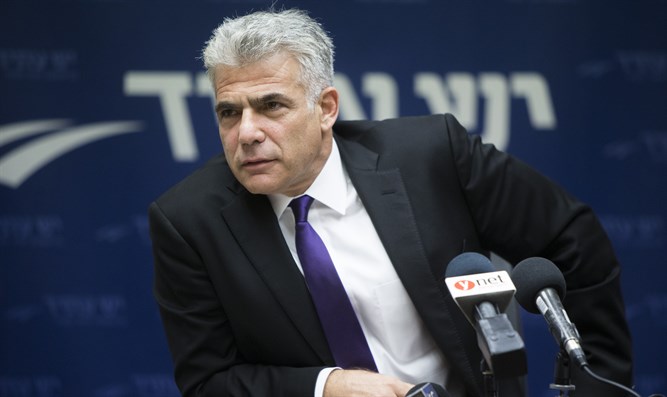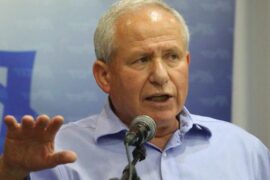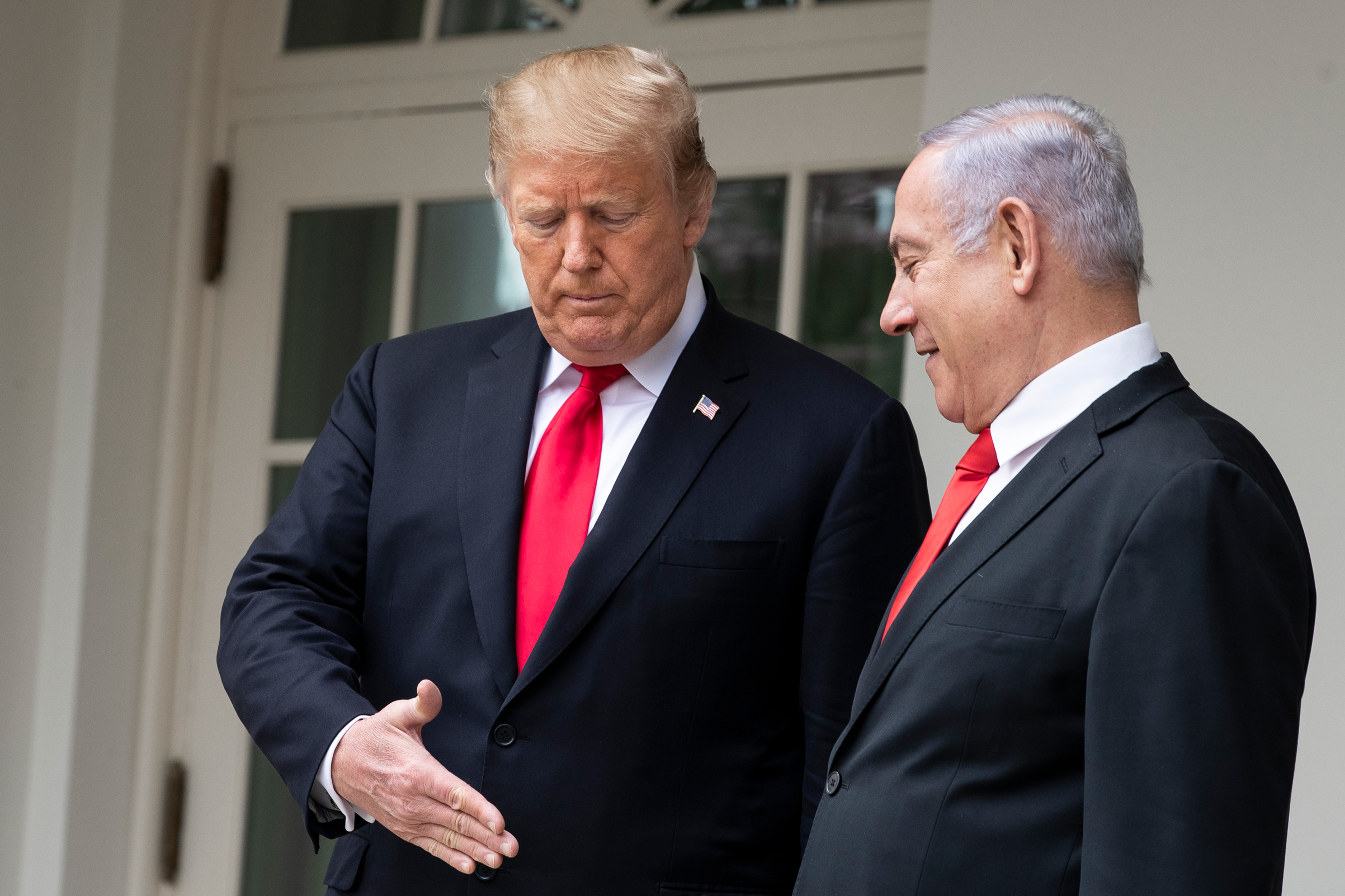Opposition leader Yair Lapid confirmed Monday night at a Yesh Atid faction meeting that United States President Donald Trump will demand not only the division of the country but also that Jerusalem’s Abu Dis neighborhood become the capital of a future Palestinian state.
“Over the weekend, different sources began saying that in the American paper that will be presented next month, Abu Dis will be mentioned as the capital of Palestine,” Lapid said, arguing that Prime Minister Binyamin Netanyahu (Likud) must have already agreed to Trump’s demands.
“This brings up two questions,” Lapid charged.
“One, is the two-state solution back on the table with the prime minister’s agreement? Two, is Abu Dis acceptable to Netanyahu as the future Palestinian capital?”
“If it’s true, the Israeli public needs to know.”
Word has been circulating Washington since January that Trump’s Mideast team — led by Middle East special envoy Jason Greenblatt, US Ambassador to Israel David Friedman and the president’s advisor and son-in-law Jared Kushner — was eyeing Abu Dis for the capital of a future Palestinian state.
When Defense Minister Avigdor Lieberman (Yisrael Beiteinu) first revealed that Trump is planning to force a two-state solution on Israelis and Palestinians, American officials claimed the rumors were baseless. Many right-wing Jewish figures also rushed to Trump’s defense by claiming the reports to be fabricated.
But based on over half a century of experience, it would make sense to err on the side of caution and assume that any American administration, whether Republican or Democrat, would seek to partition the country into two states, each dependent on American power for survival.
Trump’s plan shouldn’t be seen as a departure from previous American attempts to implement a two-state solution. The difference is expected to lie in Trump’s belief in his own ability to bulldoze it through.
Trump has been positioning all the parties for a successful implementation of his agenda. By moving the US embassy from Tel Aviv to Jerusalem in such an ostentatious and divisive manner that played in the international press as a major Israeli diplomatic triumph over the Palestinians, the president has fostered a political atmosphere in which Israel owes his administration a tremendous debt.
It was also reported that Trump froze some $200 million in aid earmarked by the US federal budget for the Palestinian Authority.
By diplomatically indebting Israel to his administration and beating the Palestinians into submission, Trump seems to believe he can succeed where his predecessors failed in pushing through Washington’s two-state agenda.
Even if the Trump plan has not yet been finalized, the rumors should be understood as test balloons from Washington, which would mean that the Jewish reaction to the news could determine how far Trump’s team feels it can push Jerusalem without losing domestic Jewish support.
Rather than rushing to defend Trump and dismiss reports of his regional agenda as fabricated, those who would be troubled by the notion of his administration forcing partition on Israel should be expressing their outrage as aggressively as possible.
How Jews respond to rumors of American pressure to divide the country could determine the extent to which that pressure is applied. If all Greenblatt, Kushner and Friedman see from Israeli nationalists and the right-wing Jewish Diaspora community is blind support and understanding, they’ll be less likely to experience any significant pangs of conscience when pushing Israel to surrender the cradle of Jewish civilization.





